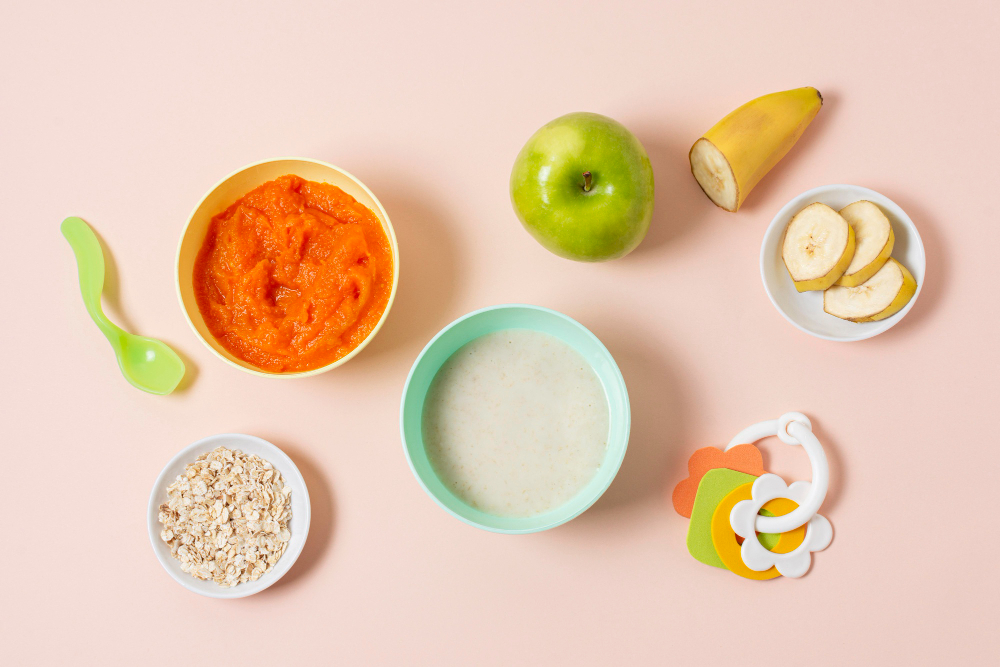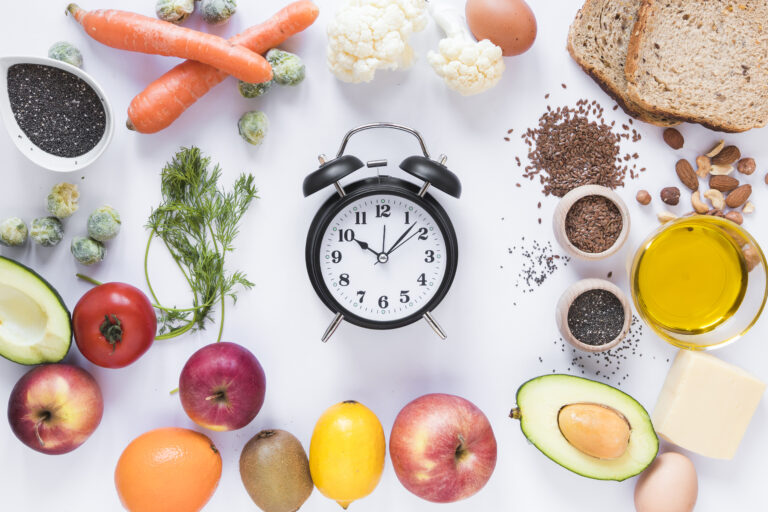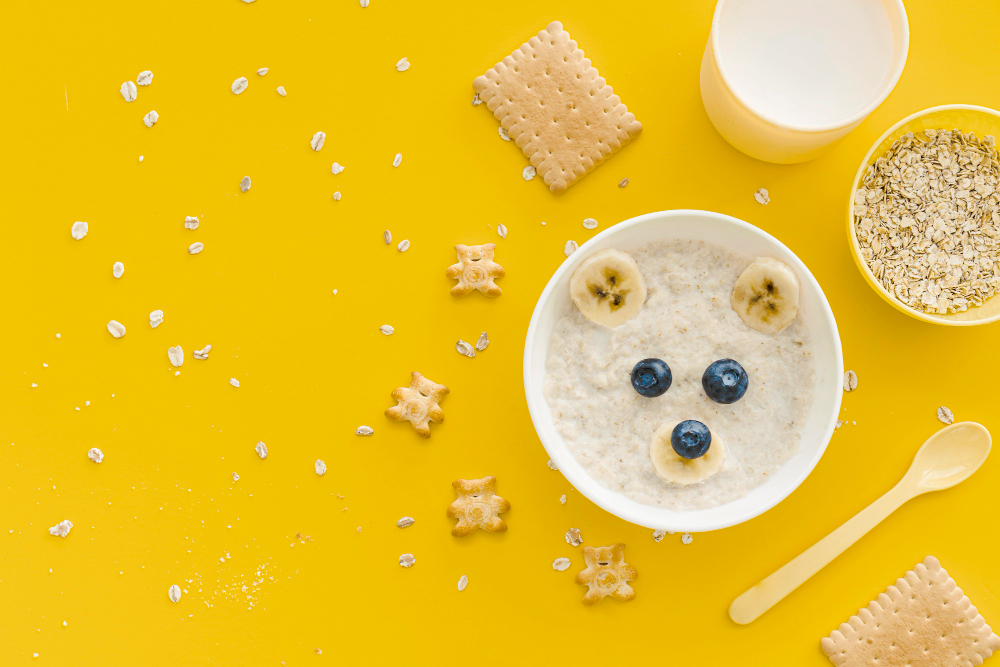
As parents, they want the best for their children, especially when it comes to food. Most people buy organic food for babies, which is also correct. This is better for your growing child because it does not contain synthetic pesticides, chemical fertilizers or genetically modified organisms. Stores have many of the best organic food options for babies, but it can be fun and satisfactory to prepare them yourself. This complete guide will show you five simple organic food recipes for babies that you can prepare at home and give your child the best organic food.
Why Choose Organic Baby Food?
Let’s talk about why organic baby foods are a good choice before we get to the recipes:
- No harmful chemicals: Organic farmers do not use harsh chemicals on their crops. This means there will be less harmful ingredients in your child’s food.
- Higher nutrient content: Some studies say organic food may contain more vitamins. This may be better for your child’s health.
- Better for the environment: Organic farming is better for our planet. This is one way to help the environment while breastfeeding your baby.
- No GMOs: Organic food does not contain genetically modified ingredients. If you’re concerned about GMOs, organic food is a safer option.
- Peace of mind: When you know what’s in your child’s food, you’ll worry less. It’s good to be careful about what your child eats.
Now, let’s get cooking with these simple, nutritious organic baby food recipes!
1. Creamy Avocado and Banana Puree
This no cook meal is rich in good fats which are important for brain development and is ideal for beginners.
Ingredients:
- 1 ripe organic avocado
- 1 ripe organic banana
Instructions:
- Cut the avocado in half, remove the pit, and scoop out the flesh.
- Peel the banana.
- Mash both fruits together with a fork or blend until smooth.
- Add a little breast milk or formula if needed to reach the desired consistency.
Why it’s great: Avocado contains a lot of good natural fats that help the brain grow and absorb nutrients. There is also a lot of fiber, calcium and vitamins. Bananas are naturally sweet and contain a lot of fiber, potassium and vitamin B6. This recipe of organic baby diet is great for children over 6 months of age.
Serving suggestion: It is best to serve this sauce immediately. If your child does not eat it completely, you can keep the rest in the fridge for 24 hours in a jar, so that the air will not come in.
2. Sweet Potato and Apple Mash
A delicious combination of sweet and salty tastes that will surely delight the palate of your young child.
Ingredients:
- 1 medium organic sweet potato
- 1 organic apple (such as Gala or Fuji)
Instructions:
- Peel the sweet potatoes and apples and cut them into small cubes.
- Steam until soft (about 10-15 minutes).
- Blend or mash together, adding water if needed for desired consistency.
Why it’s great: Sweetness is a great way to obtain fiber, vitamin C and beta-carotene, which the body turns into vitamin A. Apples make food sweet and rich in fiber and vitamins. Children between the ages of 6 to 8 months will like this healthy baby food.
Storage tip: It is possible to keep this pulp in a layer of ice pieces for three months. It is advisable to keep them in a freezer-safe bag or container after snowflakes freeze.
3. Pea and Spinach Green Goodness
It is an excellent source of dynamic puree iron and vitamins, which is perfectly suitable for growing children.
Ingredients:
- 1 cup organic frozen peas
- 1 cup organic baby spinach
Instructions:
- Steam the peas until tender (about 5 minutes).
- Add spinach and steam for another minute.
- Mix together, adding a little cooking water if needed.
Why it’s great: Beans contain a lot of fiber, vitamin A and C, and plant-based protein. For example, spinach contains a lot of iron, calcium and vitamins. For children between the ages of 6 to 8 months, it is one of the best organic baby foods to feed your child vegetables because the method of mixing the ingredients present in it is excellent.
Nutrition boost: You can add a few drops of lemon juice to this mixture, this will help your body to absorb iron better. Lemon contains vitamin C which helps the body to absorb iron better.
4. Carrot and Lentil Protein Punch
A protein packed puree perfect for growing babies and introducing new textures.
Ingredients:
- 1 cup organic carrots, chopped
- 1/4 cup organic red lentils
Instructions:
- Cook lentils according to package directions.
- Steam the carrots until soft.
- Blend carrots and lentils together, adding water to desired consistency.
Why it’s great: This recipe of organic baby food contains protein, fiber and beta-carotene from plants. Carrots contain vitamin A and antioxidants, and lentils are an excellent way to get iron and B vitamins. For children of 8 to 10 months who are ready for high food food, it is great.
Texture tip: As your child grows up, you can mash instead of lubricating the mixture. This will help your child to get used to more design foods.
5. Mixed Berry Yogurt Blend
A probiotic-rich treat for older kids that’s nutritious and delicious.
Ingredients:
- 1/2 cup mixed organic berries (strawberries, blueberries, raspberries)
- 1/4 cup organic plain full-fat yogurt.
Instructions:
- Steam the berries until soft (you can skip this step if using fresh).
- Blend the berries until smooth.
- Stir in yogurt.
Why it’s great: This organic baby food formula contains a lot of vitamins, calcium and bacteria. Yogurt contains calcium and protein, and berries contain fiber and vitamin C. It is good for children aged 8 to 10 months who have already eaten dairy products.
Allergen note: When you give curd to your child, keep an eye on the symptoms of dairy allergy or intolerance. Always talk to a doctor before giving such things to the child which can be harmful.
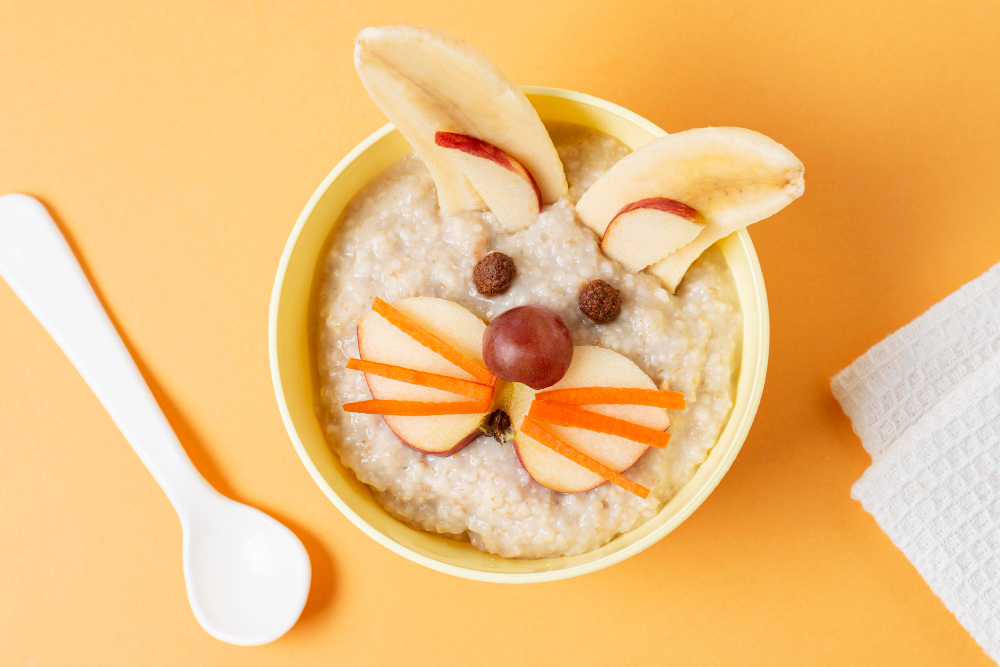
Tips for Making and Storing Organic Baby Food
- Wash produce thoroughly: It is important to wash all the products, even organic products, so that any type of dirt or potential contaminant can get rid of.
- Cook foods until soft: It is easy to clean them and eat them thus, but do not cook them for long to maintain nutrients.
- Make larger batches: For ease of use, make more than you need and freeze it in parts.
- Use ice cube trays: These baby foods are very good for the diet to freeze in the suitable size for one -time food.
- Label and date: Always write a date and list of materials on homemade biological baby food.
- Thaw safely: You can use defrost settings on your microwave or place frozen baby food in the fridge to melt. Baby food should never be left in the open to melt.
- Use glass containers:To prevent chemical leakage from plastic, it is best to place the baby food in a glass container as far as possible.
Introducing New Foods and Textures
When introducing new organic infant food recipes:
- To make it easier to detect any allergy or sensitivity, start with a puree that requires only one component.
- Beware of any adverse effects and wait three to five days before adding another dose.
- Your baby may have to make more than one effort to taste a new taste. Be patient!
- From smooth puree to mashed and eventually soft, chopped food, you can gradually increase your child’s growing texture.
- It is important to keep an eye on your baby while eating.
The Benefits of Homemade Organic Baby Food
Making your own organic baby food offers several advantages:
- Control over ingredients: Without any additional filler or preservative, you can be sure that your child is getting only pure elements in her diet.
- Freshness: Home -made baby food maintains more nutrients, as it does not remain for months.
- Cost-effective: Making your baby food with a large amount of biological components can be more cost effective than buying a pre -prepared biological options.
- Customization: Your child’s dietary limitations and personal choice can guide you in preparing taste combinations.
- Reduced environmental impact: There is less packaging waste when baby food is cooked at home instead than purchased at the shop.
- Introduction to family meals: You can adjust your family’s food for your growing child, which will make them easier to sit on the table and eat food.
Balancing Homemade and Store-Bought Organic Baby Food.
You can use organic baby food purchased from the store, but it would be better to make it yourself. In fact, the two can give the best results together:
- Convenience: On hectic days or while traveling, store-bought solutions work well.
- Variety: Professional biological baby diet contains a lot of interesting taste combinations that you cannot make at home.
- Fortification: Iron and omega-3 fatty acids are two additional nutrients that are included in some biological babies diet sold in stores.
- Quality control: Eligible biological baby diet manufacturers follow rigorous quality and safety guidelines.
The most important thing is to eat your baby healthy, organic food, whether you prepare it at home or buy from supermarket.
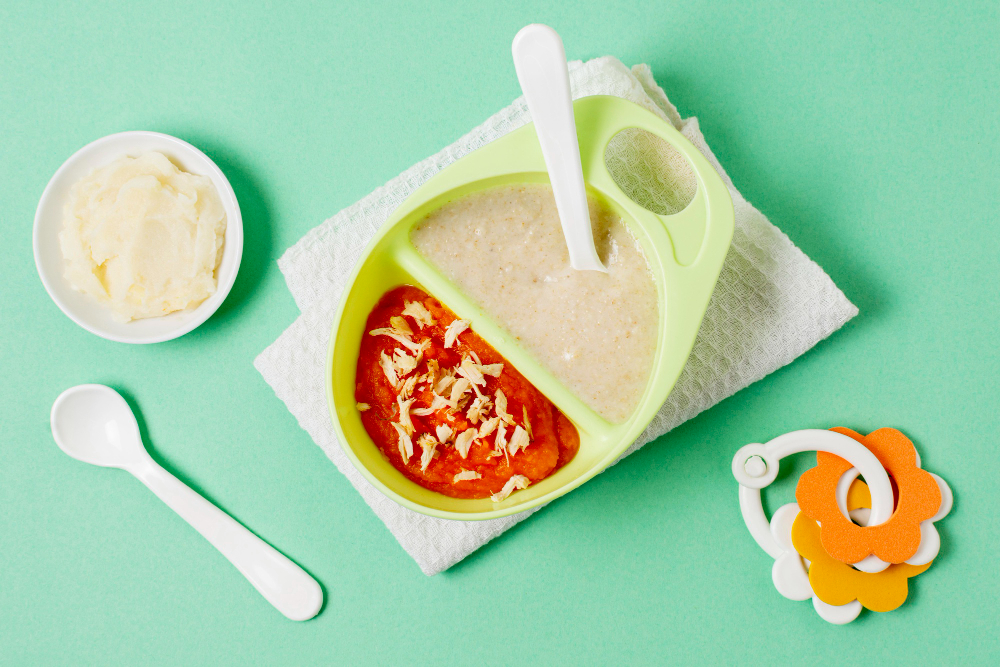
Conclusion.
Homemade baby food organic is a work of excessive love. You can create a good food environment for a lifetime by using organic products by making nutritious puree and taking time to prepare it. The journey of your little ones can start with these five easy dishes.
Keep in mind that a child’s choice and developmental timeline is as personal as it is itself. While some may have some difficulty in trying new tastes, others may need some more time. Take your time, be happy and enjoy this unique opportunity to join your child.
As your child grows up, do not hesitate to try different organic grains, fruits and vegetables. There are many options available for organic baby food, each of which has its own unique nutrition profile that will help in your child’s development.
By including these organic baby food recipes in your diet, your child’s health and well will be nurtured in every way. Therefore, use with tastes, be creative in the kitchen and enjoy your child by telling about the amazing world of organic foods!
Have fun in the kitchen; Your child’s welfare depends on this!
More Blogs for You.
Viral Dubai Pistachio Chocolate Bar Recipe.

